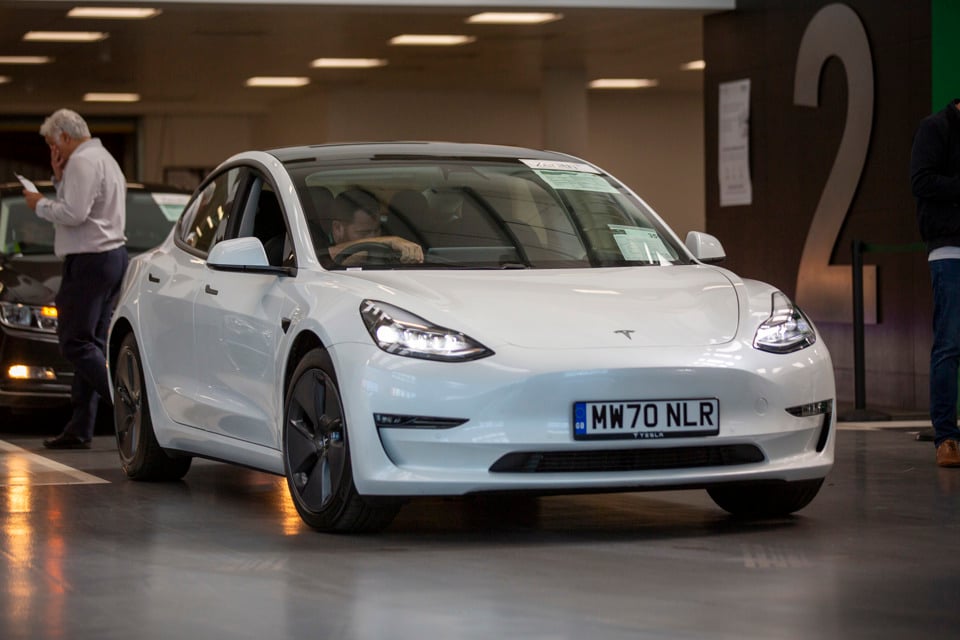Tesla proved that it remained the “EV brand to beat” after Q4 deliveries drove a 59% rise in profitability for Elon Musk’s zero-emissions car brand.
Musk predicted that volumes could soar from 2022’s 1.3 million units to two million globally this year after a late rally for the brand which saw it deliver almost a third of its full-year UK volume in December alone.
And while this month’s new car price cuts may have triggered “ill-feeling” among recent customers and compounded issues with falling used car values, analysts suggest that the move has left the business better placed to do battle with its rivals on price.
Tesla proved that it remained the “EV brand to beat” after Q4 deliveries drove a 59% rise in profitability for Elon Musk’s zero-emissions car brand.
Musk predicted that volumes could soar from 2022’s 1.3 million units to two million globally this year after a late rally for the brand which saw it deliver almost a third of its full-year UK volume in December alone.
And while this month’s new car price cuts may have triggered “ill-feeling” among recent customers and compounded issues with falling used car values, analysts suggest that the move has left the business better placed to do battle with its rivals on price.
Q4 financial results published today showed that Tesla made $3.69 billion (£2.97bn) from October through to the end of December as revenues rose to $24.3bn (£19.6bn) – up 37% year-on-year.
Gross margins shrank 5ppts on Q4 202, to 25.9%, however.
The Financial Times reported that the company’s stock, which lost about $700bn in market value in 2022, is now up nearly 40% this month as a result of Tesla’s apparent uplift in performance.
Ross Gerber, from wealth management group Gerber Kawasaki, told the FT: “The intelligent thing to do, long term, is to get as much adoption of Tesla as possible.
“For investors, there is confidence that scaling will bring down the average cost per vehicle, so the margins will come back, hopefully by the end of the year.”
Rebecca Crook, chief growth officer EMEA and CI&T, suggested that Tesla had “challenging times ahead”, but had displayed the agility to react and grow.
She said: “It has somewhat alienated customers with Musk's high-profile approach around Twitter. Its limited designs and range, combined with high prices, make the company very exposed to other automotive brands who have really invested in designing electric vehicles at a more accessible price point.
“Tesla’s gross margin also fell and this is bound to have been hugely impacted by the 'discounting' approach it has taken. While it may have attracted some new consumers, loyal customers were likely agitated by the move.
“Specifically, in Europe, proposed legislation by the EU to reduce carbon emissions from new cars and vans by 100% by 2035 will only fuel more competition to the market.
“Price is going to be what really matters to consumers in 2023, and this is where Tesla really need to focus its efforts. With the cost-of-living crisis, EV sales will most likely continue to slow, as consumers watch the pennies and consider whether they will make any savings by switching from a petrol car.”
Alyssa Altman, head of transportation and mobility at digital transformation consultancy Publicis Sapient said that Tesla's global price reductions showed that Tesla can "react fast and pivot on customer needs", meanwhile, adding: "Profit will be found in other areas of the business."
She said: "Tesla’s future looks bright. It will never go back to it incredibly over-valued days; however, will continue to be the EV brand to beat.”
Login to continue reading
Or register with AM-online to keep up to date with the latest UK automotive retail industry news and insight.
















Login to comment
Comments
No comments have been made yet.